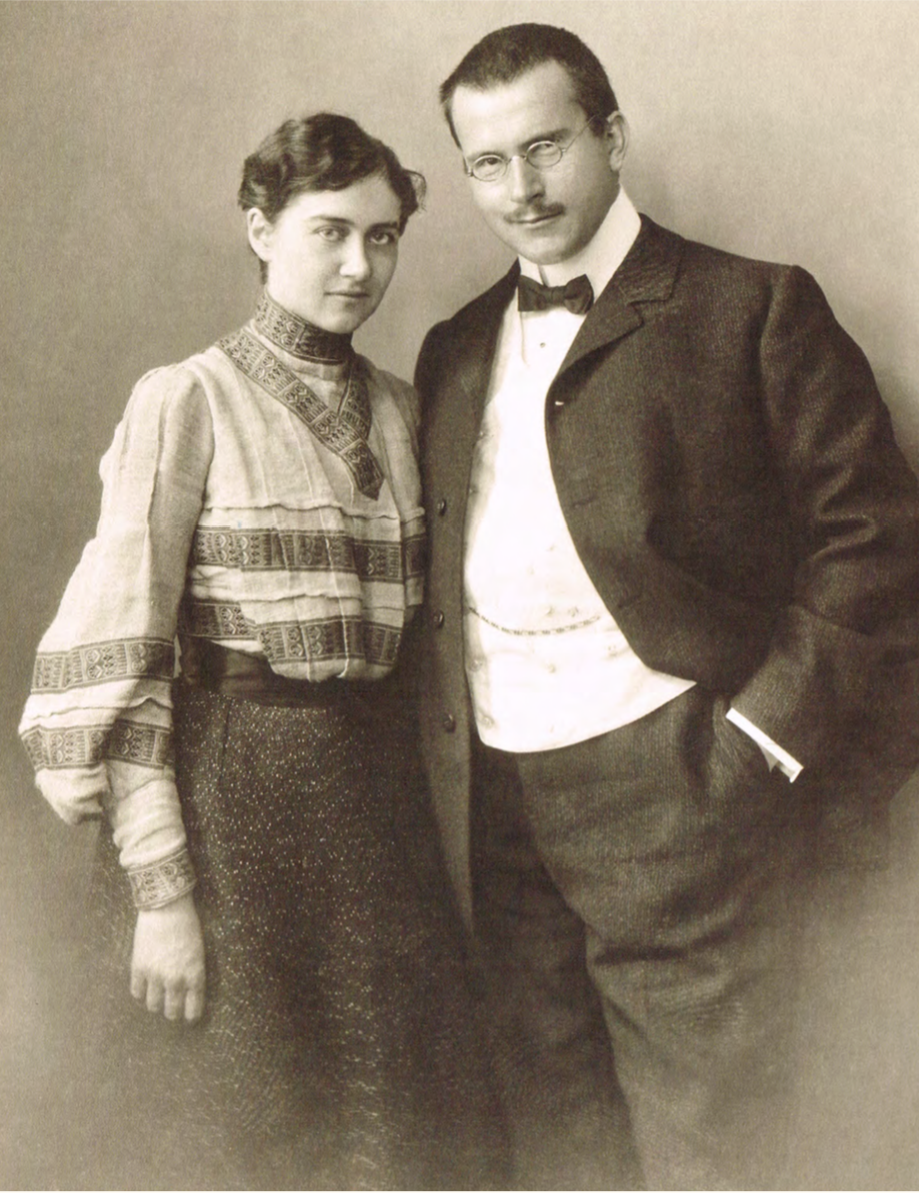- DE
- EN
Carl Gustav Jung (1875-1961), physician and psychiatrist, founder of analytical psychology, was an interdisciplinary scientist and great thinker of the 20th century.
Introversion and extraversion, complex, archetype, shadow, individuation or synchronicity are further concepts and terms that go back to him and have long since become part of our everyday language. C.G. Jung developed these on the basis of his therapeutic experiences with patients and their dream and fanatasy material, his extensive knowledge of natural, cultural and religious sciences and, last but not least, his own experiences. With his discovery of the collective unconscious, C.G. Jung expanded his teacher and patron Sigmund Freud's view of the unconscious.
C.G. Jung was born on 26 July 1975 in Kesswil, Canton Thurgau, the son of the protestant pastor Johann Paul Achilles Jung and his wife Emilie Jung-Preiswerk. C.G. Jung grew up together with his younger sister Gertrude Jung in Kleinhüningen near Basel in the modest economic circumstances of his educated parents' home. After completing his medical studies in Basel, C.G. Jung was called to the Burghölzli psychiatric hospital in Zurich, run by Professor Bleuler, to specialise in psychiatry.

C.G. Jung got to know his future wife when he was a young student at the age of 21. He met her for the first time on a visit to her parents’ house in Schaffhausen in 1896. Emma Rauschenbach (1882-1955) was only 14 at the time but she left such a deep impression on Jung that he was convinced that he would marry her one day, and, six years after meeting her for the first time, Carl Gustav, now a young trained medical doctor, proposed to Emma. They got married on February 14th, 1903 after which the young couple moved into a small flat on the premises of the psychiatric hospital Burghölzli in Zurich where Jung was working. Their first daughter, Agathe, was born in 1904, followed in short succession by the couple’s other children, Gret, Franz, Marianne and Helene.
After the early death of his father, the pastor Paul A. Jung-Preiswerk, young Carl Gustav, then twenty-one years of age, had to support his mother Emilie and his younger sister Gertrud. Unlike her husband, Emma came from a wealthy family of manufacturers. An inheritance bequeathed to her by her father Johannes Rauschenbach-Schenk enabled Carl Gustav and Emma to start thinking about a new home for the family. The couple purchased a plot of land on the Lake of Zurich and built a house there in 1908, according to C.G. Jung’s visions. In 1905 Jung attained his postdoctoral qualification, quitting his job as a clinical psychiatrist when the family moved to their new residence in Küsnacht. From then on Jung treated private patients at home. At the same time, he applied himself to his own research work and developed the school of Analytical Psychology. Emma actively supported her husband in his work. In 1910 she began analysing her dreams with him and soon became involved in research herself; from 1930 onward she worked as an independent analyst.
C.G. Jung was an exceptionally original, lively and intuitive researcher. His wife Emma, a woman of great wisdom and maturity, was by his side throughout. Without the warm and supportive companionship of Emma, C.G. Jung’s life and work would probably have taken a different turn.